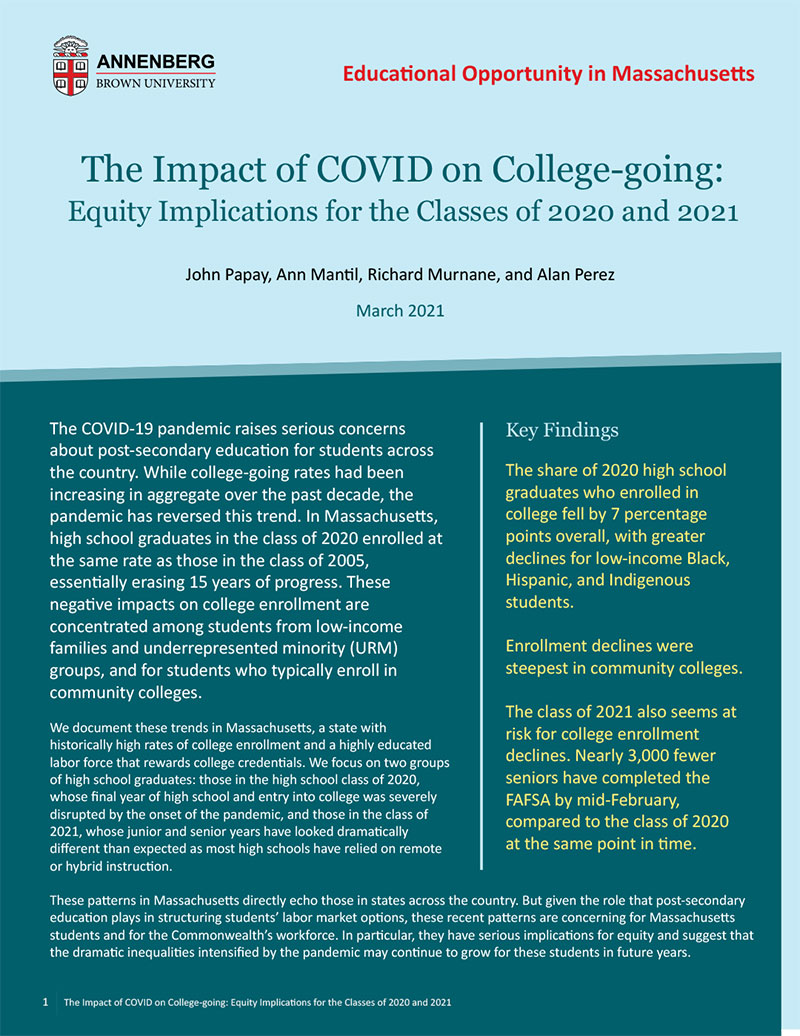John Papay, Ann Mantil, Richard Murnane, and Alan Perez
The COVID-19 pandemic raises serious concerns about post-secondary education for students across the country. While college-going rates had been increasing in aggregate over the past decade, the pandemic has reversed this trend. In Massachusetts, high school graduates in the class of 2020 enrolled at the same rate as those in the class of 2005, essentially erasing 15 years of progress. These negative impacts on college enrollment are concentrated among students from low-income families and underrepresented minority (URM) groups, and for students who typically enroll in community colleges.
We document these trends in Massachusetts, a state with historically high rates of college enrollment and a highly educated labor force that rewards college credentials. We focus on two groups of high school graduates: those in the high school class of 2020, whose final year of high school and entry into college was severely disrupted by the onset of the pandemic, and those in the class of 2021, whose junior and senior years have looked dramatically different than expected as most high schools have relied on remote or hybrid instruction.
These patterns in Massachusetts directly echo those in states across the country. But given the role that post-secondary education plays in structuring students’ labor market options, these recent patterns are concerning for Massachusetts students and for the Commonwealth’s workforce. In particular, they have serious implications for equity and suggest that the dramatic inequalities intensified by the pandemic may continue to grow for these students in future years.
Key Findings
- The share of 2020 high school graduates who enrolled in college fell by 7 percentage points overall, with greater declines for low-income Black, Hispanic, and Indigenous students.
- Enrollment declines were steepest in community colleges.
- The class of 2021 also seems at risk for college enrollment declines. Nearly 3,000 fewer seniors have completed the FAFSA by mid-February, compared to the class of 2020 at the same point in time.

